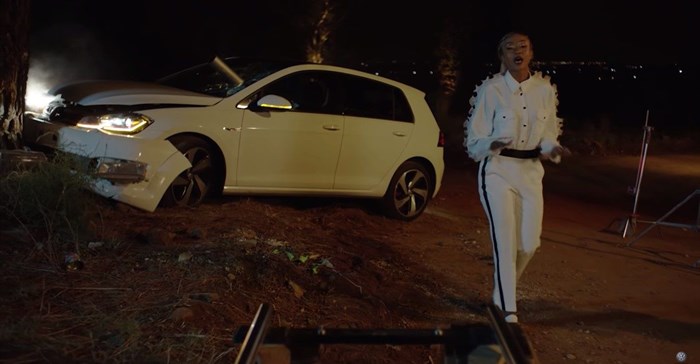
Top stories






More news


Marketing & Media
Ads are coming to AI. Does that really have to be such a bad thing?














When I did it the first time, I got the reaction I was looking for – a (thankfully) short amount of true panic before the realisation set in that I was just being an idiot. The realisation set in quickly because idiocy was all too frequent in her experience of me no doubt!
So, when I see this Nomuzi ‘Moozlie’ Mabena fake car crash story I am reminded of my own regrettable and ridiculous actions to garner a response from those with whom I had a relationship, and given this #VWDriveDry campaign was a product of careful construct by a group of adults (I believe), I am appalled.
There is a lot of noise already about the stunt, and given Volkswagen South Africa have apologised for funding it, it does seem that the consequences of deliberately misleading those who are dear to you have already been realised.
My despair, however, is beyond the event itself – it’s at the continued belief by some marketers and even media specialists that “disruption” and “talkability” are acceptable substitutes for trust and authenticity.
What happened the very next time my mother saw me playing dead in the pool? She shook her head and went back to what she was doing. Classic “Cry Wolf” scenario.
Media and marketers rely on one critical currency for their success – real human relationships. If we engage with authenticity with our target audiences – however, wrapped in showbiz and delivered with sizzle it may need to be – we deepen and grow these relationships.
If my friend faked a car crash to get my attention about drinking and driving, I would not consider this person worthy of friendship. After I’d gotten over the wholesale trade of my emotional connection for a marketing message, I would simply not trust a word they said any more.
In my years of broadcasting, I have certainly witnessed a few stunts and deceptions (the industry calls it “smoke and mirrors”) in service to a campaign or entertaining content – indeed I have been involved in a few. If I recall correctly, Gareth Cliff and TBWA did a drink/drive content piece at 5FM circa 2004 that was not dissimilar to the Nomuzi stunt, though far quicker and more humane in the “reveal”, and I was part of those discussions.
But even the most basic deception always makes me feel uncomfortable. It is always something I discourage because if our listeners don’t think they can trust us, then at best they will feel less included, and at worst they will simply go somewhere else.
Nomuzi will be at the centre of this particular 15 minutes of social media storm and emerge the other side potentially more famous than before. But another tiny knife of distrust has been flung at the content we consume until at some stage the whole edifice of credibility (what’s left of it) will come tumbling down.
You CAN still create a breakthrough on brand or cause-related messaging without fabricating the content. Sure, it gets harder because gatekeepers of editorial integrity are fewer, and under more pressure to compromise, but there are great examples of success. Think about the cause-related campaigns like the Black Label #NoExcuse campaign, or how Nando’s use of topicality and humour consistently to great effect.
It’s my belief that people first engage with people and brands for many reasons related to the first-impression they create - but they stay engaged when there is recognition of, and comfort in the VALUES of those people and brands. And values are demonstrated through actions, not words. I really hope that the lasting benefit of this literal marketing car-crash will be some introspection from creatives, agencies, celebrities, and content teams on the real costs of these shock tactics.
